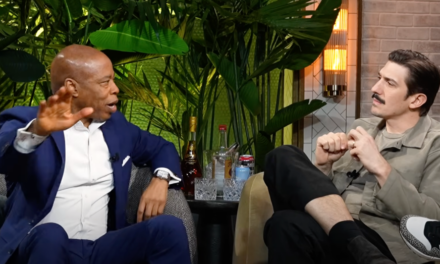In a move that has been closely watched by media analysts and fans alike, former White House Press Secretary Jen Psaki has stepped into the time slot vacated by Rachel Maddow on MSNBC. The transition marks a significant shift in the network’s evening lineup, as Maddow has been a dominant force in progressive commentary and news for over a decade. However, just two months into her new role, Psaki appears to be struggling to capture the same large audience that Maddow commanded.
Rachel Maddow’s program was a staple for many viewers, filled with in-depth reporting, political insights, and a unique narrative style that kept audiences engaged. Following her departure, expectations were high for Psaki to maintain, if not enhance, the engaging discourse that characterized Maddow’s tenure.
When the announcement came that Jen Psaki would take over Maddow’s time slot, it sparked both excitement and skepticism. Psaki, known for her articulate press briefings during her time in the Biden administration, seemed a fitting choice to continue the network’s tradition of delivering progressive viewpoints while providing critical analyses of the day’s news. However, after eight weeks in the spotlight, the initial ratings indicate that attracting and retaining the key demographic of viewers has proven to be a challenging task.
According to the latest Nielsen ratings, Psaki’s program has consistently lagged behind both CNN and Fox News in the coveted 25-54 age demographic, which is critical for advertisers. While the ratings are not the only measure of success, they do highlight the uphill battle that Psaki faces in filling Maddow’s shoes. CNN, previously seen as a struggling contender in the realm of evening news, seems to have regained some foothold by outpacing MSNBC in this essential demographic since Psaki’s debut.
Audience analytics reveal that Maddow’s dedicated following was not only drawn to her political analysis but also to her ability to weave complex narratives that resonated with viewers on an emotional level. In contrast, Psaki’s style appears more conventional—grounded in straightforward presentation and analysis, which may be falling short of the engaging storytelling that viewers had grown accustomed to under Maddow’s tenure.
The landscape of cable news is changing, and the competition is fierce. Ratings fluctuations are not new in the media world; cycles of popularity often shift based on various factors, including headline news, political turbulence, and media personalities’ charisma. For instance, the return of former President Trump to the political forefront has played a significant role in altering viewing patterns across networks.
Understanding the reasons behind the current disparity in ratings requires a closer examination of formats and strategic programming choices. One significant factor may be how Psaki positions herself in relation to her predecessor. While Rachel Maddow frequently incorporated a blend of humor, personal anecdotes, and narrative-building into her broadcasts, Psaki tends to adopt a more straightforward and informative approach. This shift in tone and delivery could alienate some of Maddow’s loyal viewers who appreciated her more dynamic engagement with political topics.
Moreover, there is a question of timing. The transition from a familiar face like Maddow to a new host, especially in a critical news cycle, can result in temporary viewer displacement as audiences adjust to a new perspective. This transition phase can be particularly crucial, as many viewers might be seeking continuity in coverage amid uncertainties in the political climate, especially leading up to the 2024 presidential election.
Furthermore, viewers are increasingly turning to streaming services and social media for news, resulting in a fragmented audience for traditional cable networks. The digital landscape offers viewers immediate access to information and different perspectives, contributing to the challenges cable news faces in attracting younger audiences, who are a part of the critical demographics for advertisers.
As Psaki abruptly dives into handling the complexities of live television, her team will need to conduct strategic outreach and analysis to refine her show’s content to reclaim the audience. While the initial ratings may seem discouraging, the dynamic nature of the media world means that perhaps with time, enhancement in presentation style and strategic programming could eventually draw viewers back.
Media analysts suggest that Psaki’s team may benefit from analyzing audience feedback and engagement metrics to adapt the tone and pacing of the show accordingly. As journalism viewer habits continue to evolve, incorporating viewer-interactive elements, such as real-time social media engagement or audience-driven topics, could be effective in rebuilding the viewer base and enhancing the show’s appeal.
Another critical aspect often overlooked is the role of political guests and expert commentary on audience engagement. Jen Psaki might need to broaden her circle of guests, drawing on diverse political thinkers, cultural commentators, and even voices from opposing viewpoints to foster deeper discussions. Such interactions could stimulate lively debates and offer fresh insights on pressing issues, drawing back disengaged viewers and bolstering the show’s relevance in a rapidly evolving political landscape.
As the media landscape continues to shift and audiences adapt to new consumption patterns, the challenge for Psaki and MSNBC will be to not only regain lost viewers but also to forge a unique identity that captures the urgency and vibrancy of contemporary political discourse. Whether through enhancing her delivery style, rethinking programming strategies, or engaging audiences more directly, establishing a strong connection with viewers is paramount in sustaining long-term success.
In conclusion, while the difficulties faced by Jen Psaki in the wake of Rachel Maddow’s departure are evident, they represent an opportunity for growth and refinement. The coming weeks will be crucial. Viewers will undoubtedly be watching closely to see how Psaki navigates this challenging landscape and whether she can eventually find her footing in what has become an increasingly competitive arena. For the sake of MSNBC and its loyal viewers, it is a challenge that holds the potential for both significant transformation and viewer engagement if approached with strategic insight and authenticity.
































